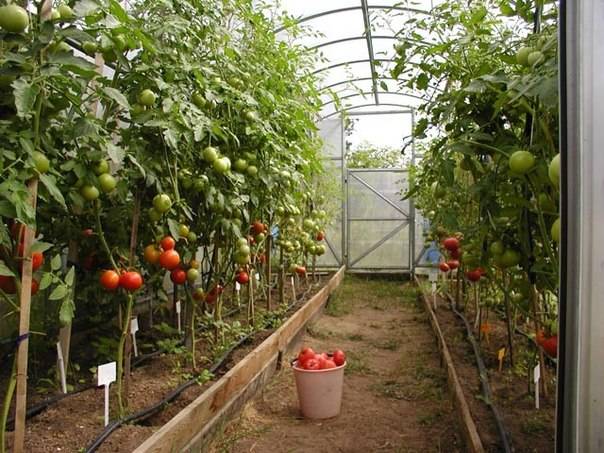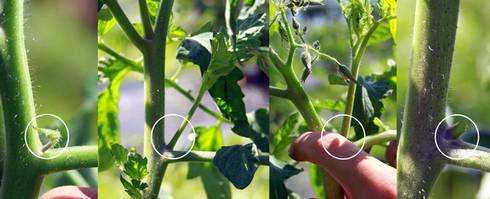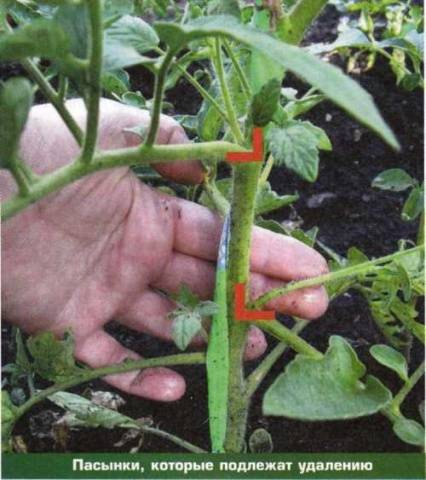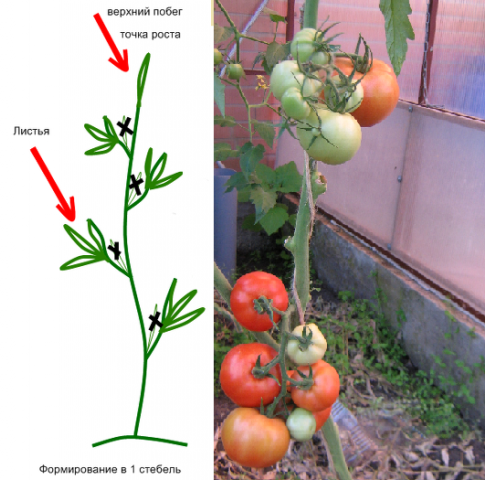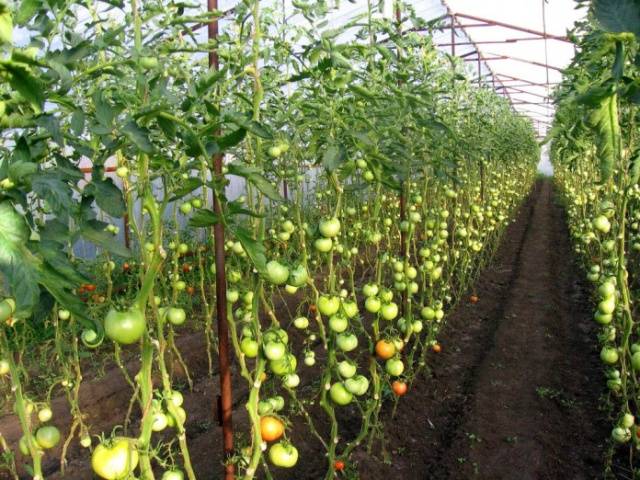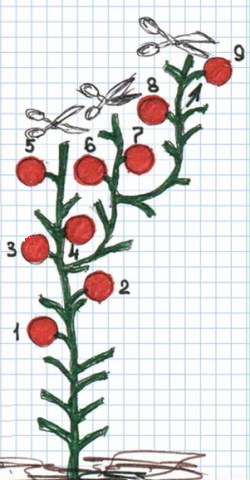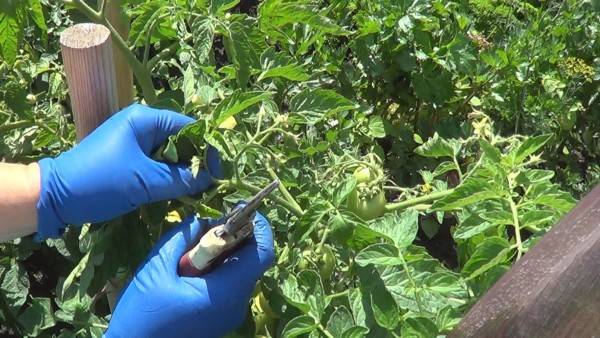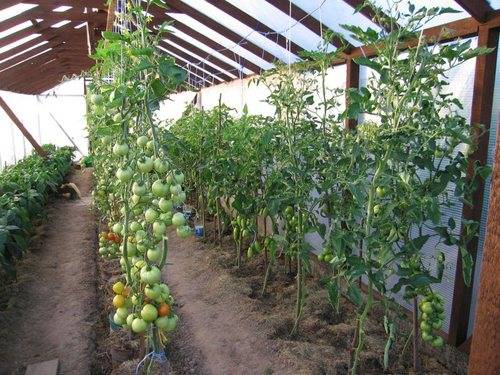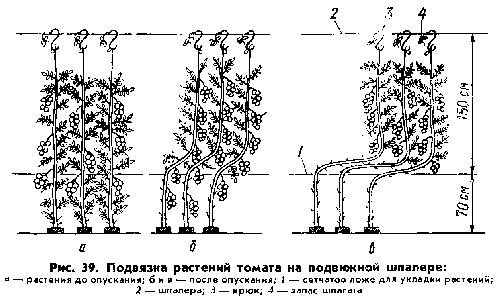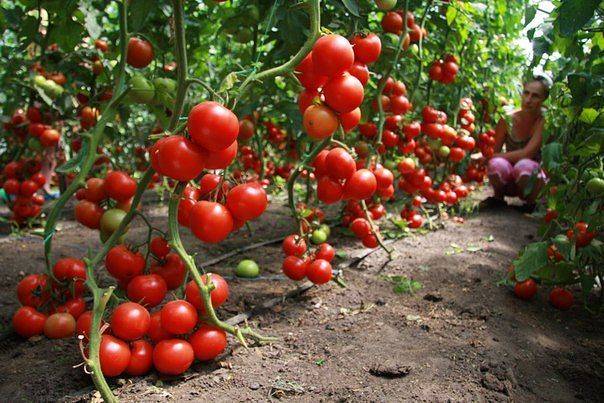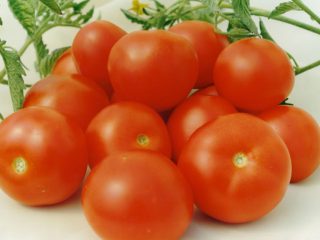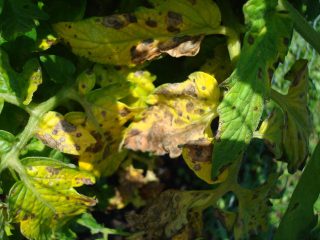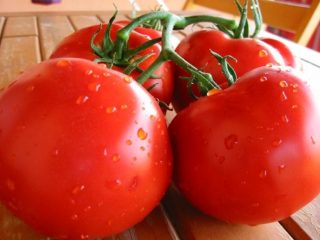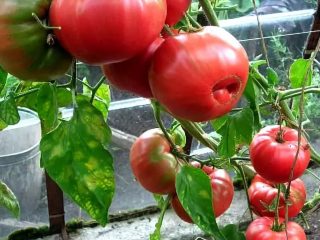Content
Quite often, farmers grow indeterminate tomatoes in greenhouses. Their main advantage is the high yield obtained thanks to the unlimited growth of plants. Indeterminate tomatoes in favorable conditions with the right temperature and humidity can bear fruit year-round in large quantities. At the same time, tomato bushes up to 3 m high, form many lateral shoots - stepchildren, thereby thickening the planting. This can lead to decay of still unripe vegetables, the development of diseases, and a decrease in the overall yield of the crop. To prevent this situation, farmers use the formation of indeterminate tomatoes. It is based on pinching and pinching of tomato bushes. Schemes and basic principles of the formation of tall indeterminate tomatoes are described below in the article.
What are stepchildren and why delete them
The lateral shoots growing in the axils of tomato leaves are called stepchildren. To grow them, tomatoes spend a lot of energy, taking resources away from the fruits and branches that form on the main stem of the plant. If you leave the plants without pinching, then they grow strongly. In greenhouse conditions, this can become a real problem, since dense plantings impede the natural circulation of air and can cause the development of various fungal and infectious diseases, and provoke rotting of fruits. In such conditions, the yield of the crop is significantly reduced, and the tomatoes themselves are under tremendous stress.
You can prevent the occurrence of thickened plantings with the help of timely pinching of tomatoes. Farmers for indeterminate tall tomatoes more often use the one-stem formation method. In this case, it is necessary to remove all side shoots.
The method of stepwise formation of tall tomatoes is also practiced, with the replacement of one main shoot with a lateral stepchild. It is necessary to form tomatoes in compliance with certain rules that will help free the plants from excess greenery, without harming their health.
The classical scheme of the formation of plants in one stem
Active growth of lateral shoots is characteristic of tomatoes that grow in favorable conditions. The first stepchildren of indeterminate tomatoes are formed in the bosom of 6-8 leaves. As a rule, this moment falls on the time after planting the plants in the ground. As soon as the length of the stepson reaches 5 cm, it must be removed. Grazing of indeterminate tomatoes in the greenhouse is carried out every 10-13 days. The procedure for removing stepchildren is often combined with a garter of tomatoes to a support.
The formation of tall, indeterminate tomato varieties into one stem involves a number of the following activities:
- Removal of all lateral shoots (stepchildren) allows you to direct micronutrients and moisture from the root of the plant along the main stem directly to the ovaries and fruits of the plant. This speeds up the ripening process of tomatoes and improves their filling, evenly distributes the load on the bushes. It is necessary to remove stepchildren on tomatoes from the moment they appear until the end of the plant's life cycle.
- Removal of some fruiting brushes carried out at the beginning of the fruiting period of tomatoes. The first ovaries form and fill for a very long time, therefore, by removing the inflorescences, you can increase the number of formed ovaries and hasten the ripening process of existing fruits located higher up the main stem. To accelerate fruiting and increase the number of inflorescences, only the first two flower clusters are removed.
- Removing the leaves of a tomato bush under the lower flowering brush allows tomatoes not to waste energy on the maintenance of the "extra" green mass. The measure allows you to reduce the load on the plant from the growing growth and accelerate the process of formation, ripening of fruits. It is necessary to pinch off the lower leaves of tomatoes, starting from the moment the stepsons are removed throughout the growing season, once a week, no more than 3 leaves at a time;
- Pinching the top of the main stem carried out at the end of the fruiting period, approximately one month before the removal of the last fruits. This measure allows you to speed up the ripening process of tomatoes left on the branches by autumn. Pinch the top of the tomatoes, leaving 2-3 top leaves free of fruiting brushes. The leaves left will help transport nutrients up the stem of the plant from its root, saturating the leaves and fruits with moisture and essential trace elements.
Thus, the process of forming indeterminate tomatoes is a set of sequential activities that should be performed regularly. With their help, you can increase the yield of the crop, regulate the ratio of the number of vegetables and leaves of the plant, and accelerate the ripening process of tomatoes. Below in the picture you can study in detail the scheme for the formation of tall indeterminate tomatoes in one stem according to the classical technology.
For beginners in farming, it can be useful to watch a video, where you can personally see the process of forming indeterminate tomatoes in a greenhouse and hear some tips and advice from an experienced farmer:
Stepwise formation of indeterminate bushes
The scheme proposed above for the formation of indeterminate tomatoes in one stem is classic. It is it that gardeners often use it when growing crops in greenhouses, greenhouses and in open areas of soil. However, the scheme has one significant drawback: the main shoot by the end of the growing season becomes very long and it is quite difficult to tie it up.
The disadvantage of such a scheme can be eliminated by the stepwise formation of an indeterminate bush into one stem. The principle of this formation of tomatoes is to leave one strongest shoot in the bosom of 4-5 leaves of the plant. In the process of growing crops, this shoot develops on an equal footing with the main stem of the tomato. As soon as it gains enough strength and begins to bear fruit, pinch the main stem and lead the left shoot as the main stem. It has the same unlimited growth as the main stem. Leaves and flower ovaries of the plant are formed on it. To accelerate the ripening of the ovaries, such a lateral stem is stepchild, adhering to the basic rules for the formation of indeterminate tomatoes.
With a long growing season, the left side shoot can also reach the height of the greenhouse ceiling. Observing such an active growth of the abandoned shoot, one more stepson can also be saved on its surface in the lower part, which, after pinching the "mother" shoot, will become the main stem and continue the fruiting of the culture.
This way of pinching and pinching indeterminate tomatoes used for growing crops on an industrial scale and in greenhouses in private farmsteads. It allows tomatoes to be cultivated for a long period of time. At the same time, the shape and height of the plants will not complicate planting care. You can see a diagram of such a stepwise formation of indeterminate tomatoes in the picture below.
When forming tomatoes, it is important to know ...
The formation of a tomato bush is associated with the removal of stepsons, leaves, tops. Such "operations" lead to the appearance of damage on the surface of the plant stem. Through the damaged surface, tomatoes can become infected with viral and fungal diseases. You can eliminate the likelihood of infection if you follow some simple rules:
- Grasshopping of indeterminate bushes in the greenhouse should be done early in the morning. At this time, the plants are saturated with moisture and their shoots are easy to break off with your fingers.
- The formation of bushes in the early morning allows all the resulting wounds to dry out in a day and in the evening they are not afraid of viruses and fungi.
- When pinching, it is necessary to leave a small stump in the axils, which will not allow a new lateral shoot to develop in the axil of this leaf.
- For pinning, you can use a knife or scissors. After removing each stepson, it is recommended to treat the blade of the tool with a 1% solution of potassium permanganate or other disinfectant. This will prevent the spread of infection and viruses between plants.
- When removing stepchildren and plant leaves with your hands, care must be taken not to damage the delicate skin of the tomato trunk. To do this, it is recommended that the lateral shoots be bent not downward, but to the side during removal. Leaves are removed by bending down or cut with a knife.
- In the course of pinching the plants, it is imperative to leave several green full-fledged leaves at the top, otherwise the plant may die.
- Passynching should be carried out regularly once every 10-15 days.
- When forming indeterminate varieties of tomatoes in a greenhouse in a stepwise manner, it is necessary to select the strongest stepson in advance, for his subsequent "leading".
- Inexperienced farmers need to learn to distinguish flower brushes from formed stepchildren. The leaves of the lateral shoots are clearly distinguishable when the stepson grows, therefore it is recommended to remove the stepsons when they reach a size of 5 cm.
The above rules for the formation of tomatoes must be strictly observed by each farmer when growing crops in open ground or under cover. This will allow, when removing excess green mass, not to harm the plants.
Garter of indeterminate tomatoes
Indeterminate tomatoes are grown both on open plots of land and in greenhouses and greenhouses. In this case, tall plants must be carefully tied to a support. In the open field, the garter of tomatoes is often carried out to the trellis. Its height for indeterminate varieties of tomato should be at least 1.5 m. Also, some owners practice a garter of tomatoes to the net.
You can see an example of installing such an original support in the video:
In greenhouses and hotbeds, it is convenient to tie indeterminate tomatoes with movable trellises, that is, with twine to the frame of a stationary structure. The method is suitable for plants formed in a stepwise manner and in one stem. An example of such a garter can be seen in the photo below.
When the height of the indeterminate plants reaches the ceiling of the shelter, you can use a vertical tie or bend the plants upside down. This method of tying is great for bushes that are formed according to the classical principle of one stem. The movable trellis allows, by partially lowering the trunks, to provide additional space for the growth of bushes. You can see an example of this method of garter tall tomatoes in a greenhouse in the picture:
When tying indeterminate tomatoes, it is necessary to ensure that the loops do not pinch the trunk of the plant. So, the lower loop around the trunk of the tomato must be made free, with the expectation that the trunk will increase in diameter during the growth of the plant. It is not recommended to tie the twine higher up the trunk into knots. It is preferable to simply twist it around the main stem of the tomato.
An example of the correct garter for tomatoes is shown in the video:
Outcomes
Timely pinching and pinching, reliable tying of plants and removal of the lower leaves are the key to the correct formation of indeterminate tomato bushes. It is necessary to carry out activities with knowledge of the matter and adherence to the basic rules. Only in this case it will be possible to competently regulate the growth of tomatoes and the process of formation, ripening of fruits, without harming the plants.
